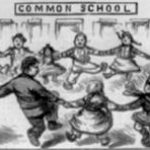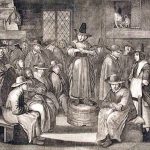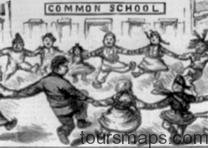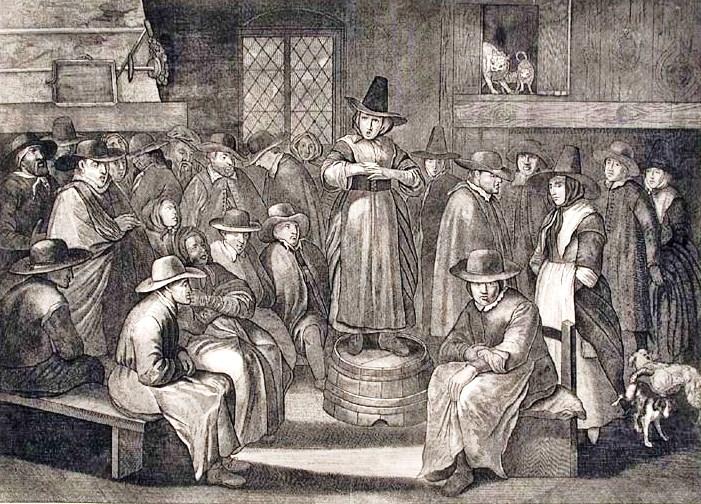But Quakers did not withdraw from public life altogether. They remained at the forefront of social reform despite their abdication from power in
Pennsylvania government. They were instrumental in developing state-of-the-art educational institutions in Pennsylvania, promoting criminal justice reform,
and providing for the relief of the poor. For example, the Friends’ Alms House in Philadelphia (1729) became a model of charity for the disadvantaged;
when joined with the Bettering House (1767), it offered the Atlantic world a new vision of philanthropy and benevolence.
Perhaps Quakers are best known for their leadership in another area of social reform, antislavery. Prominent Quaker ministers John Woolman and
Anthony Benezet were the best-known antislavery reformers in the colonial world. The efforts of Quaker antislavery activists won the Philadelphia Yearly
Meeting the distinction of being the first organized religious body to denounce slavery (1754), and Benezet organized the first antislavery society in
America (1775).
All told, Quakers made up less than 2 percent of all religious adherents at the time of the American Revolution, and therefore they influenced the direction
of American politics, society, and culture out of proportion to their numerical strength in early American history. The cumulative legacy of Quaker efforts to
eliminate oppression and liberate the human spirit in the seventeenth and eighteenth centuries gave the denomination a distinct identity.
An epilogue to this colonial experience might be found in the women’s movement prior to the U.S. Civil War. After being banned from the World’s AntiSlavery
Convention in London because of her gender, Quaker reformer Lucretia Mott helped Elizabeth Cady Stanton organize the first women’s rights
convention at Seneca Falls, New York, in 1848.
Jeffrey B. Webb
See also: Penn, William; Pennsylvania; Pennsylvania (Chronology); Religion (Chronology); Religion (Essay); Document: Protest
of German Quakers Against Slavery (1688).
Bibliography
Barbour, Hugh. The Quakers in Puritan England. New Haven, CT: Yale University Press, 1964.
Levy, Barry. Quakers and the American Family: British Settlement in the Delaware Valley. Oxford, UK: Oxford University Press, 1988.
Marietta, Jack D. The Reformation of American Quakerism, 17481783. Philadelphia: University of Pennsylvania Press, 1984.
Nash, Gary B. Quakers and Politics: Pennsylvania, 16811726. Princeton, NJ: Princeton University Press, 1968.
Tolles, Frederick B. Meeting House and Counting House: The Quaker Merchants of Colonial Philadelphia, 16821763. Chapel Hill: University of North Carolina
Press, 1948.
American Quakers and Social Reform Photo Gallery
Maybe You Like Them Too
- Top 10 Islands You Can Buy
- Top 10 Underrated Asian Cities 2023
- Top 10 Reasons Upsizing Will Be a Huge Travel Trend
- Top 10 Scuba Diving Destinations
- The Best Cities To Visit in The World




